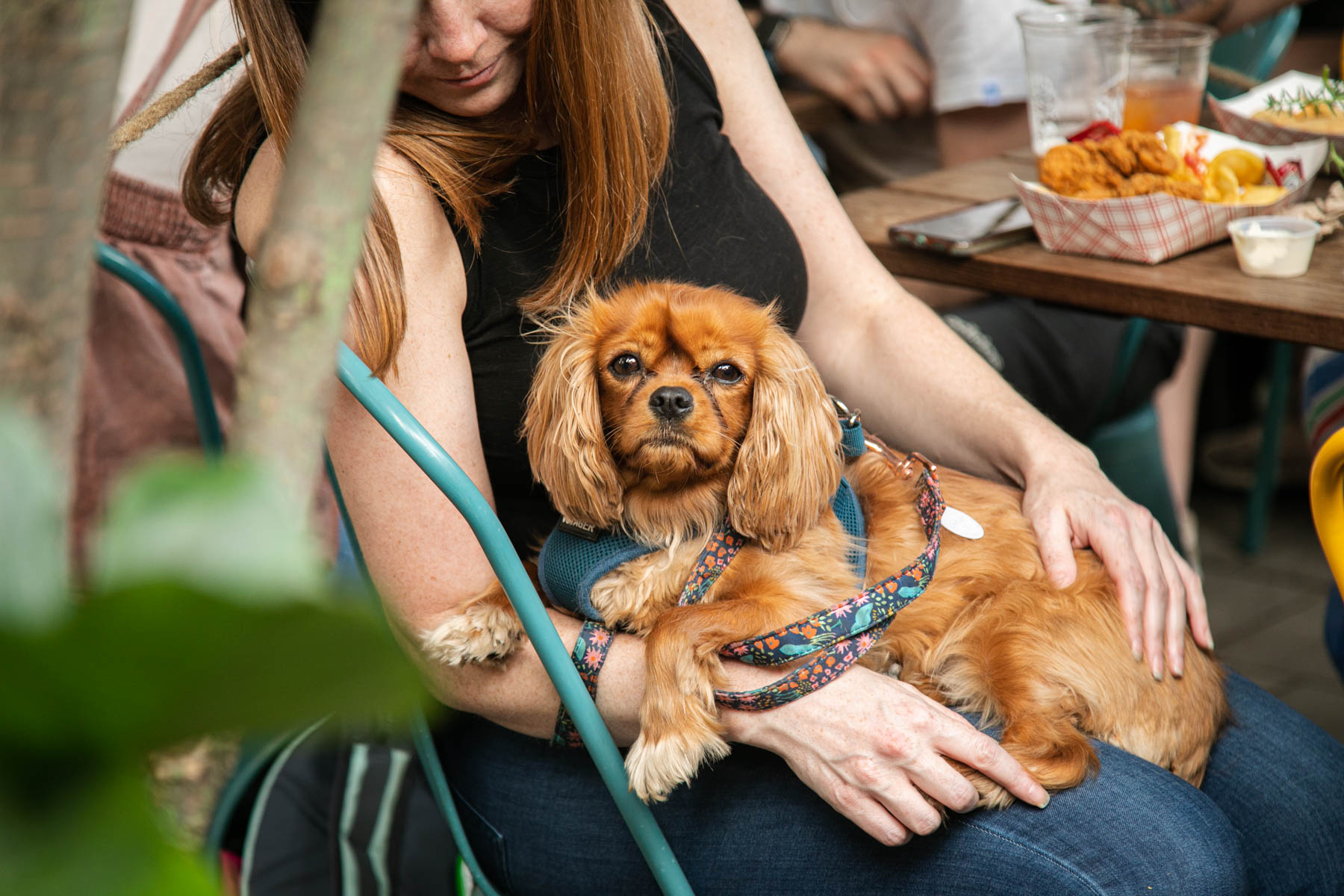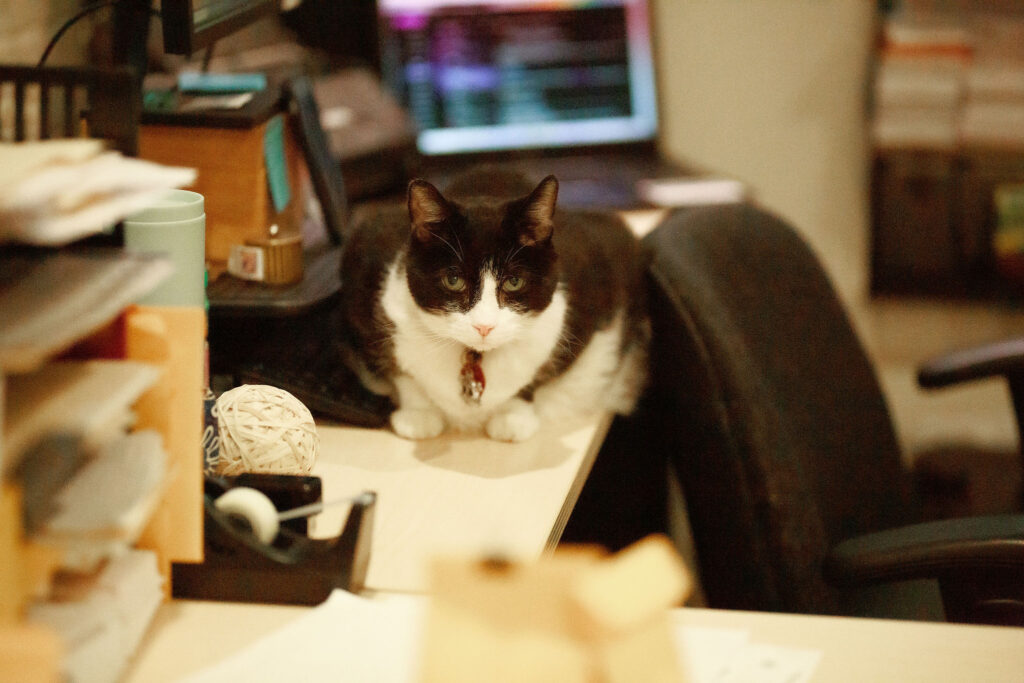renting
Finding a Pet-Friendly Rental

A dog sits on owners lap during one of the PHS Plant Swaps sponsored by Solo Real Estate. Image courtesy of the Pennsylvania Horticultural Society.
Whether your pet is a parrot, a large breed mutt, or a cat with over a thousand followers on TikTok, moving to a new apartment can be daunting. What exactly does “Pet Friendly” mean? Why is there a “Pet Fee”? And how can you tell in advance if this is the right move for you and Fluffy? As realtors who work with hundreds of landlords throughout the City, we understand your concerns and want to help you find the best home for you and your pet. What’s more, at Solo Real Estate, we are pet lovers ourselves and understand that your pet is an important member of your family.
Read the fine print
There is no shortage of ads for pet-friendly apartments in Philly. A few even offer pet spas and doggie parks. But these seemingly animal-friendly places come with fine print. For instance, an online ad for a new apartment building announces “cats and dogs welcome” and even touts a rooftop dog park but in smaller type it states, “Please note that dog breed restrictions apply.”
Restrictions are often placed on large breeds: Pitbulls, Chow Chows, Great Danes, Dobermans, Rottweilers, Bulldogs, German Shepherds, etc. Even if your pup is a mutt of unknown mixed breeds, be aware that landlords still may veto your application. You may have to get Geronimo a DNA test to show that he is more Poodle than Husky. This requirement isn’t backed by science and can be frustrating, especially if you are the owner of a Great Dane with the disposition of a Bichon Frisee but it’s a common thing to encounter as a renter.
Size and weight restrictions may also be something you encounter as some units limit pets to under 20 pounds but do not be discouraged. There is no City ordinance regarding pets so it’s up to the landlord’s discretion.
Noise Issues
Unless you work at home and never go out at night, you may not be aware of your pet’s nonstop barking, yowling, or squawking. However, your neighbors may report these annoying sounds to your landlord, who could demand that you stop the problem or move. Not to worry. The American Kennel Club offers humane tips on resolving the problem without resorting to a shock bark collar. Chewy also has tips on stopping separation anxiety in your cat. As for your highly vocal parrot, check out the suggestions on Wiki How.
Exotic Pets
Whether you have a pet carp, turtles, or tropical sea creatures, fish tanks of any size may be a no-no in some apartments. Again, it’s up to each landlord and apartment manager. They may impose a limit on the size of the aquarium. Believe it or not, the noise from the filter and pump may be a disturbance to neighbors in adjacent units of floors.
The same goes for your child’s pet snake, ferret, hamster, or guinea pig. Do not assume because they are gentle, quiet, and “part of the family,” that they are allowed. Every rental property has its own rules.

Landlord Concerns
Put yourself in a landlord’s position. They have to replace carpeting and flooring in apartments that have been irreparably stained by an incontinent dog or cat. Fleas are another headache and expense. Let your prospective landlord know that you maintain an active flea-control program for your pet and home. Provide written proof that your pet is spayed or neutered. It helps to show that your pet is healthier, calmer, and less likely to be a nuisance. You may also want to provide proof that your pet is up to date on its vaccines.
Pet Fees
Whether you have a docile, senior cat or a Chihuahua puppy, you may be asked to pay an additional fee for your pet. Whatever verbal agreement you have with your new landlord or leasing agent, get it in writing. If the written lease has a no-pets clause, verbal approval will not be sufficient. Don’t under any circumstance try to sneak your pet in. You may be subject to possible eviction or other legal action.
Respect other tenants
Introduce yourself and your pet to your new neighbors, exchange contact information, and encourage them to let you know if they have any concerns. You want them to call you before they issue a complaint to management. Always leash your dog before you leave your apartment. Don’t just carry the leash in your hand. Be aware of other tenants’ comfort level when taking your pet inside elevators, hallways or the lobby.
When strangers, especially children, reach out to pet your dog, let them know if it’s okay or not. Be prepared for your dog’s reaction to other dogs and cats in the building. (Yes, cat owners sometimes let their kitty prowl the hallway.) In some cases, you may need to muzzle your dog, or carry it, until you exit the building, as much to protect your pet as to protect other tenants.

Speak with fellow animal lovers
Your best leads on pet-friendly apartments will come from other animal lovers. Chat with them at your local dog park, veterinarian, pet shop or animal rescue. Or stop by Solo Real Estate where you will be welcomed by our pet-friendly team, including Oscar, our office cat, and Hobey, Denise’s dog who comes in twice a week. While not all of the apartments we lease are pet-friendly (it’s up to the individual owners and landlords) we will do our best to help you find the perfect rental for you and your companion. Contact us at info@solorealty.com to get in touch.







